Rural people make a beeline for prosperity
IFAD Asset Request Portlet
Asset Publisher
Rural people make a beeline for prosperity
Estimated reading time: 4 minutes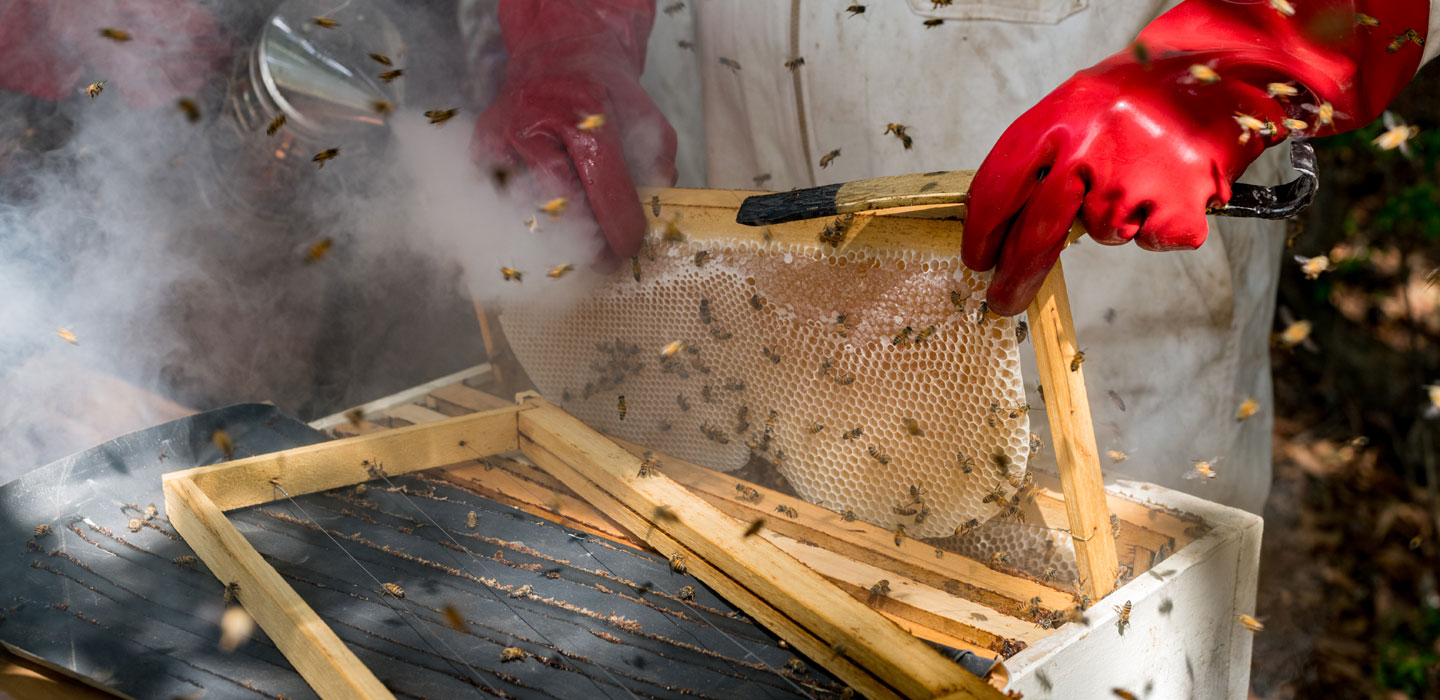
Bees and other pollinators are the tiny linchpins of diverse food systems. From cocoa and cantaloupe to almonds and apples, it simply wouldn’t be possible to grow enough tasty and nutritious food without busy bees carrying pollen from flower to flower.
While they're at it, some bees make honey, which can sell for a good price, requires little or no processing and has a long shelf life. That's why many rural people around the world have taken up beekeeping, with IFAD’s help.
Honey is a new way to make money in Tunisia
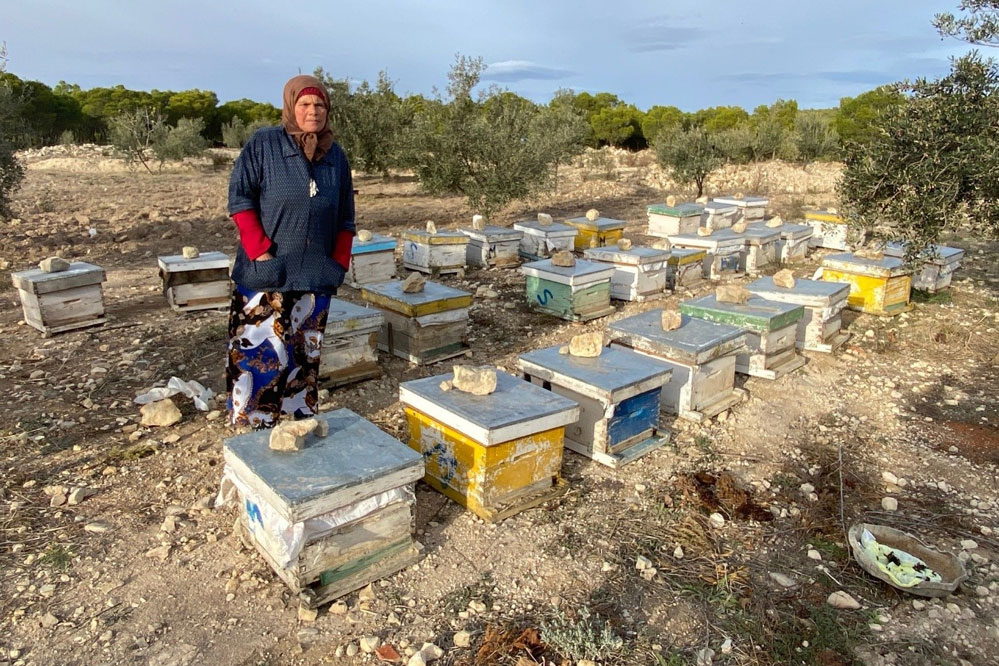 |
| Mabrouka produces and sells honey in nearby towns and online. © IFAD/Sandrine Jacqueson |
Despite her sewing skills and entrepreneurial spirit, Mabrouka Boussoufi once struggled to make ends meet.
Then, in 2020, she received beehives and training with the IFAD-supported PROFITS project. She learned about the economic potential of beekeeping in the vast aromatic forests of pine, rosemary, thyme and mastic surrounding her mountain village in northern Tunisia.
In her first year, she made enough money to cover her family’s daily needs, her daughter’s university education and invest in more bees. Today, she sells her honey in nearby towns and online with help from her daughter.
But climate change presents new challenges. Droughts reduce the vegetation bees depend on for nectar, while colder winters can harm the colonies.
Mabrouka adapted, with advice from other beekeepers. She saves a third of the honey produced in plentiful times and feeds it to the bees in leaner periods.
She also prepares bsissa, a Mediterranean food made of rosebuds, spices and grains that, when warmed, attracts bees, helping to maintain the hives’ optimal temperature even in winter. Mabrouka is happy to share this delicious treat with the thousands of tiny helpers that keep the family going.
A buzzing family business in Tajikistan
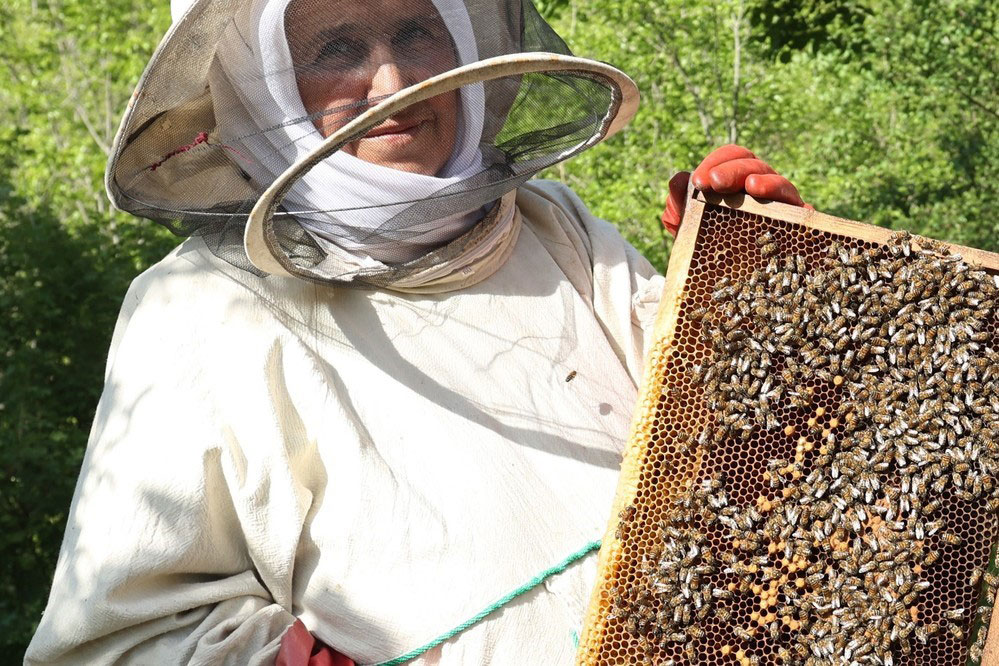 |
| Marrufa with one of the two beehives she received from an IFAD-supported project © IFAD/Didor Sadulloev |
Beekeeping is in Marrufa Tavurova's blood. “My father always kept bees, so I was used to being around them,” she tells us from her farm in central Tajikistan. “If you find a good place for the bees, where there are plenty of flowering plants, they will thrive.”
She received a boost from the IFAD-supported Community-based Agriculture Support Project which provided each member of Marrufa's community beekeeping group with two hives, as well as training in beekeeping, business management and marketing.
Combining modern techniques with her father’s methods, Marrufa checks the hives every two days to make sure they are doing well. And just as Marrufa’s father taught her how to respect and benefit from bees, she will pass on her knowledge to her son.
Buzzing mangroves in Senegal
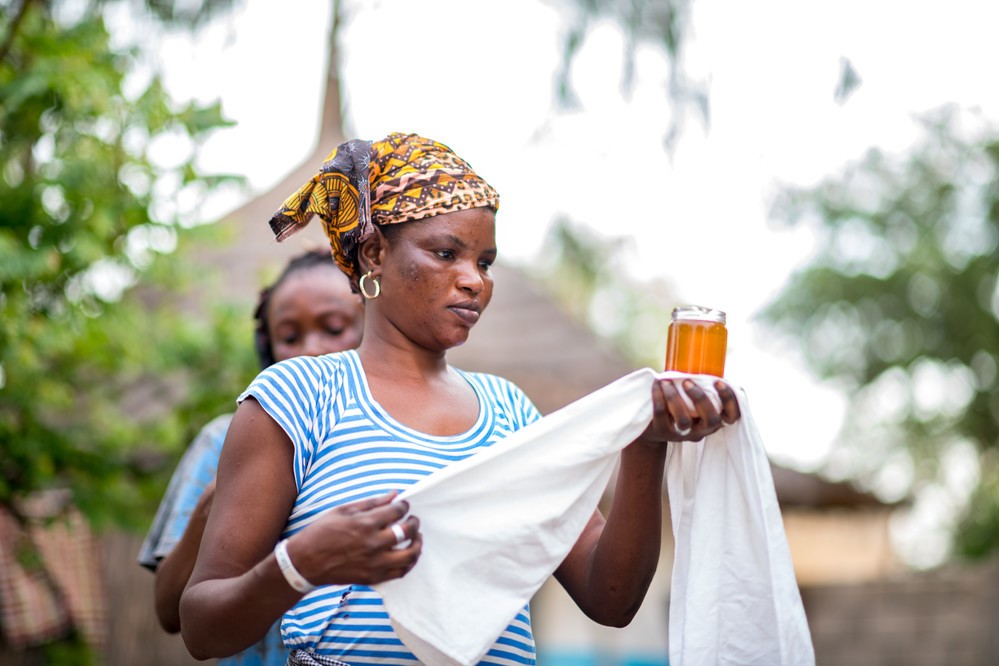 |
| A member of a beekeepers organisations in Senegal inspects a newly prepared jar of honey. © IFAD/Ibrahima Kebe Diallo |
The dense maze of mangroves in Senegal’s Saloum Delta are a hotbed of biodiversity. They’re also an important source of wealth for people like Bana Diouf, the president of Mbella Goroum, a women’s group that produces a rare delicacy: mangrove honey.
The honey sells for as much as 4,000 CFA francs (US$ 7.14) per kilogram. Prized by locals and tourists alike, demand far outstrips supply. That’s why the IFAD-funded PARFA selected it as a key product for building rural livelihoods.
Through PARFA, the women of Mbella Goroum received training, hives and beekeeping equipment.
“We then use some of our savings to reforest the mangrove and protect it, because we know we have to take great, great care of it,” says Bana.
Trees for happy bees in Moldova
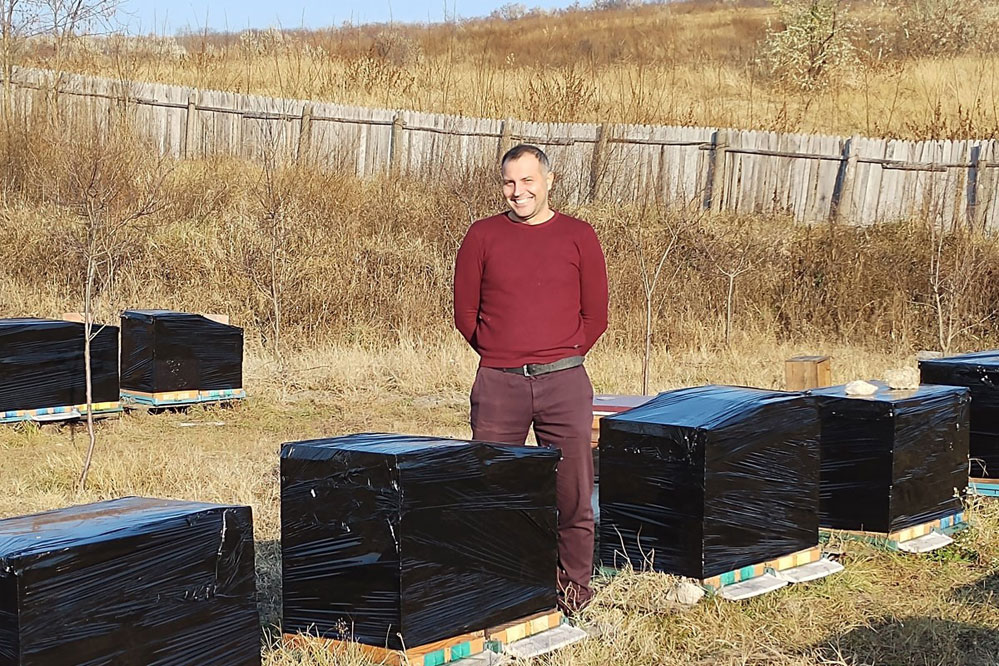 |
| Mihail planted shelter belts to protect his local forests and bees. © IFAD |
Mihail Bozianu is an award-winning beekeeper. When he started at a young age, he had just two hives – today, he owns 1,200. The source of his success? The lush forest slope where his bees forage for nectar.
When we visit this six-hectare piece of land in southern Moldova, it is covered in young trees and undergrowth. But only a few years ago, it was a barren rubbish dump and prone to landslides.
With a grant from the IFAD-financed Rural Resilience Project, Mihail planted a shelter belt forest on this slope. This agroecology technique turns degraded land into diverse forests that stop erosion, safeguard water and protect against landslides.
Moreover, by planting a careful selection of native trees like linden and acacia, Mihail has created an environment for his bees to thrive in.
But not everyone champions the wellbeing of bees like Mihail does. In fact, pollinators all over the world are in decline because of pesticides, habitat loss, diseases and climate change. Close to 35 per cent of invertebrate pollinators, particularly bees, face extinction.
These tiny workers are essential to our biodiversity and our food systems. And ensuring their survival is fundamental to our own prosperity.
Publication date: 19 May 2023